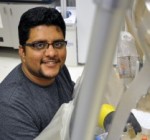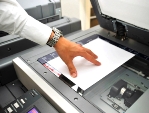A graduate student at the SUNY college of environmental science and forestry (ESF) is conducting an experiment in urban food production, using dried food waste to raise fish and using the fish waste to nourish an ever-growing crop of Boston Bibb lettuce.
The average American home spends almost 20 percent of its utility bill on cooling. Increased energy production to run cooling systems raises your costs and contributes to pollution that adversely affects the quality of the air we breathe. We've got seven simple ways to help protect your wallet and the environment.

PepsiCo has begun offering five options of eco-friendly, recyclable and compostable cups to Foodservice customers in the United States through company-owned and independent bottler distribution systems.

Despite the dry climate, the Omni hotel in Fort Worth, Texas, has installed a rooftop herb garden on one of its terraces shaded from the hot summer sun.
The U.S. Department of the Treasury is retiring the paper Social Security check for millions of baby boomers and others applying for federal benefits, a move that will save taxpayers $1 billion over the next 10 years.
As more businesses are seeing the advantages of "going green" the Virginia Recycling Association would like to be a resource for businesses that want to find out more about how and what they can recycle.
When serious engine trouble hits, the Engine Repower Council reminds vehicle owners that repowering their vehicle rather than buying a new one is the cost-effective, "green" way to go.
Seventy-eight percent report electricity cost savings, two-thirds indicate heating/cooling and paper savings, and 60 percent are cutting costs on water.
Using glycerol from a used cooking oil-to-biodiesel fuel conversion, engineering students developed a soap that is used to clean campus lab equipment and wash hands.

Recycling, and to a greater extent tolling, decouples used solvent generators from the high cost and volatility of virgin solvent prices.

A University of Alabama graduate student is using Clostidium pasteurianum bacteria to break down a biodiesel waste product and find uses for its byproducts: butanol, propanediol, and ethanol.

BMI+ImageNet helped the bank adopt a reduce, reuse, and recycle attitude in its print environment.
New survey findings are released; WhitePages and its Ban The Phone Book initiative announces $10,000 research grant to examine the environmental and economic impact of printing, distributing and disposing of the phone book.
The non-profit business will involve 100 percent organically grown and recyclable products, local suppliers, Energy Star appliances, and both solar hot-water heating and solar photovoltaic technologies.
The City of Phoenix Public Works and Street Transportation departments have signed an agreement with Ameresco to provide lighting retrofit services, materials, and equipment for the installation of traffic signal LED lamps.
Pennsylvania communities collected a record 5.48 million tons of recyclable materials in 2008, according to Gov. Edward G. Rendell.
Oil-soaked plastic boom material used to soak up oil in the Gulf of Mexico is finding new life in auto parts for the Chevrolet Volt.
Construction of a fuel cell with enough capacity to power 2,800 homes has begun on the University of California’s San Diego campus as part of a renewable-energy project to turn waste methane gas from the Point Loma Wastewater Treatment Plant directly into electricity without combustion.
Amid the holly and jolly, don't forget to be nice and not naughty when it comes to recycling during the holiday season.
Preliminary emissions testing of a small-scale waste-oil power generator have found that the system generates low emissions.